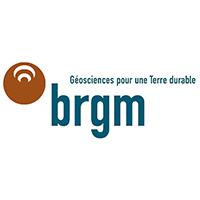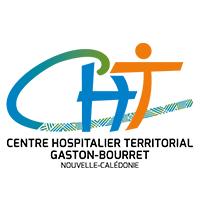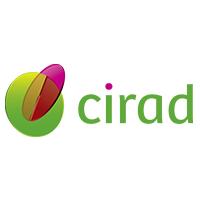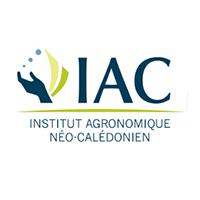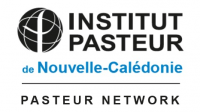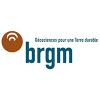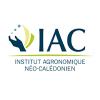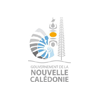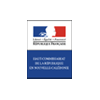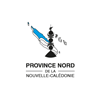The members
Bureau of Geological and Mining Research (BRGM)
The BRGM (Bureau de recherches géologiques et minières - Bureau of Geological and Mining Research) is a state-funded industrial and commercial institution under the aegis of the Ministries for Research, Productive Recovery and the Environment. France’s leading soil and subsoil specialist body, the BRGM has multidisciplinary expertise in the following fields:
- geological knowledge of territories;
- exploration of mineral resources;
- groundwater source location and management;
- environmental protection and pollution control;
- planning and natural hazards;
- subsoil studies required for successful completion of civil engineering projects.
The BRGM has been present in New Caledonia since 1950 and, since the 2000s, a New Caledonia-based branch ensures local representation of the BRGM group and some of its historic work and commitments. Operating as the local arm for the group’s scientific and technical centre in Orleans, the branch heads up and coordinates research teams assigned to work in New Caledonia.
The BRGM branch is currently based in Noumea’s Vallée du Tir neighbourhood, and is housed in the premises of the NC Department of Industry, Mines and Energy (DIMENC). Since 2006, in addition to its ongoing public service and R&D activities, the BRGM has been partnered with the New Caledonia Geological Department (SGNC). The BRGM carries out geosciences projects in New Caledonia, on behalf of the three Provinces, and is also active in Wallis & Futuna, Vanuatu and New Zealand.
Geological infrastructure and mapping, natural hazards, environmental protection, mineral resources and groundwater are all core areas of BRGM expertise.
The Bureau is active in several focus areas in New Caledonia:
- contributing to French policy in terms of cooperation;
- supporting public policy as regards natural resources, water and natural hazards;
- boosting regional cooperation initiatives;
- environment, mining and energy-linked applied research and services;
- involvement in international geological organisations and bodies, supporting European Union policies;
- responding to calls for proposals issued by multilateral donors.
AddressAntenne de Nouvelle-Calédonie
1 ter rue E. Unger, Vallée du Tir
BP 56 - 98 845 Nouméa Cedex
Nouvelle-Calédonie:(+687) 27 02 36Site webTerritorial Hospital Center (CHT)
Established in 1981, the CHT (NC Central Hospital) is a state-funded territorial institution responsible for patient care, medical and paramedical training, and medical and pharmaceutical research and teaching. As such, the CHT is a member of CRESICA.
The CHT’s programming of research topics reflects health issues affecting the country, and also researchers’ scientific interests.
Areas of research include: infectious diseases (dengue fever, leptospirosis, ARF), toxicology and addictions (cannabis, tobacco, kawa), neoplastic and cardiovascular diseases amongst the Melanesian population.
The Territorial Hospital Center (CHT) Research Committee
A Research Committee was set up in October 2010, tasked with:
- regularly reviewing research work, theses, dissertations and publications by CHT healthcare staff;
- facilitating the development of studies, setting up work groups and fostering exchanges between teams within the CHT and with other local health research bodies (IPNC, DASS, IRD, UNC, CPS…);
- helping to develop agreements (INSERM, UNC, CHU Bordeaux, Cochin Hospital);
- working to address common issues (identifying epidemiology referrals, affiliation to an Ethics Committee in France);
- energising and developing research work carried out at the CHT (ensuring availability of theses and publications, CHT website, data mining, press/media), New Caledonia Medical Day (June 2012, October 2014).
Over thirty hospital practitioners are working on human health research. Since the position of doctor-researcher-teacher is not recognised and there are no combined hospital-university posts in New Caledonia, such research is most often undertaken voluntarily in addition to clinical duties.
AddressMédipôle
110 Boulevard Joseph Wamytan,
98 835 Dumbéa-Sur-Mer
Nouvelle-Calédonie:(+687) 20 88 00Site webCentre for International Cooperation in Agricultural Research for Development (Cirad)
CIRAD (Center for International Cooperation in Agricultural Research for Development) is an Epic under the dual supervision of the Ministry of Higher Education, Research and Innovation and the Ministry of Europe and Foreign Affairs. Its origin is based in the hearts of trades of older structures that contributed to the emergence of French tropical agronomic research.
With its southern partners, CIRAD produces and transmits new knowledge to support innovation and agricultural development. It puts its scientific and institutional expertise at the service of the public policies of these countries and international debates on the major issues of agriculture. It supports the scientific diplomacy of France.
CIRAD's activities concern life sciences, social sciences and engineering sciences applied to agriculture, food, the environment and the management of territories.
It works on major themes such as food security, climate change, the management of natural resources, the reduction of inequalities and the fight against poverty.
It is now organized into three scientific departments and 33 research units. It carries out cooperation activities with more than 90 countries. Its history in New Caledonia takes root with its founding institutes during the first half of the 20th century (IEMVT, CTFT, IRFA, FLHOR, ...).
It is, by political will of the institutions of the territory, become a founding partner of the IAC (1999) with which it works locally in the field of the agronomic sciences and the rural development, that it is by the sustainable positioning of agents locally or by sharing projects with out-of-territory teams.
AddressCentre de Nouvelle- Calédonie
BP 73 Païta
Nouvelle-CalédonieAntenne de Nouméa
101 Promenade Roger Laroque
98 800 Nouméa
Nouvelle- Calédonie:(+687) 35 36 84Site webNational Centre for Scientific Research (CNRS)
The CNRS is a state-funded science and technology research centre under the aegis of the French Ministry of Education, Higher Education, Research and Innovation, present in New Caledonia since 1972.
The overall mission of the CNRS is to conduct research in all scientific, technological and societal fields, and to use such research to serve society.
The National Centre for Scientific Research (CNRS) is organised into ten discipline-based institutes and carries out research targeting all scientific, technological and societal fields. The CNRS covers the entire spectrum of scientific fields, including mathematics, physics, science and information technology and communications, nuclear and high energy physics, earth sciences and space-based science, chemistry, life sciences, humanities and social sciences, environmental sciences and engineering.The Institute for the Chemistry of Natural Substances (ICSN-UPR 2301 of CNRS) has been present in New Caledonia for 42 years. The ICSN’s medicinal plants laboratory, based at the Noumea IRD site, conducts chemical and pharmacological research into natural substances found in New Caledonia, with a view to identifying new bioactive molecules derived from New Caledonian plants for use in the pharmaceutical and agrochemical sectors.
More recently, the Montpellier Centre for Research in Ecology and Evolutionary Ecology (http://www.chimeco-lab.com) in partnership with the New Caledonian Institute of Agronomy, carried out work, which combined ecological engineering and innovative, bio-inspired green chemistry, into plants which bio-accumulate heavy metal ions intended for the environmental rehabilitation of degraded areas and restoration through ecocatalysis.
The CNRS is active in New Caledonia, to varying degrees, through 8 mixed research units based at the IRD centre in Noumea; such work is shared with the IRD and other research and/or university bodies.
AddressAntenne de Nouvelle-Calédonie
101 Promenade Roger Laroque
98 800 Nouméa
Nouvelle- Calédonie:(+687) 26 10 00Site webNew Caledonian Institute of Agronomy (IAC)
The New Caledonian Institute of Agronomy (IAC) was created in the wake of the Noumea Accord and is a research body under exclusively local governance, with almost all staff (94%) meeting local employment criteria.
In accordance with article 54 of the Organic Law of 19 March 1999, a joint association embracing local authorities (North, South and Loyalty Islands Provinces and the NC Government), the French Government, the CIRAD and the New Caledonia Chamber of Agriculture was created on 1st December of the same year.
The IAC was set up with the purpose of giving New Caledonia greater independence in terms of research, for which it shares jurisdiction with France. This represents a step forward in building the country.
Three key priorities:
- Boost and enhance production: improving food safety
- Conserve and develop renewable natural resources
- Ensure understanding and support of rural community dynamics
A cross-cutting issue requiring a partnership approach:
- Water (resources, uses, governance))
Research focussing on local needs
With a view to meeting community demands and prioritising sustainable development, the IAC has committed to a new scientific program for 2017-2021, covering three areas and eight objectives.
Overall objective
Promote sustainable rural development in New Caledonia through research work designed to support development.Specific objectives
Generate new and innovative knowledge and operational solutions, build expertise, enhance stakeholder capabilities, communicate outcomes to target audiences, follow through on knowledge transfer, with a focus on three areas:Area 1 I Biodiversity and resources: knowledge, development and protection
Objective 1: Characterise biological resources and related environments
Objective 2: Develop methods to deliver improved production and safeguard resources
Objective 3: Develop integrated pest management methods for more efficient crop protectionArea 2 I Agro-ecosystem functioning and biological interactions
Objective 4: Understand the dynamics and functioning of agricultural-social-ecological systems
Objective 5: Characterise and develop agro- and eco-system services
Objective 6: Improve management/protection and rehabilitation of species and sitesArea 3 I Rural and agricultural changes: observatory, analysis of practices and public policy support
Objective 7: Examine and analyse changes in and diversification of activity systems in rural areas
Objective 8: Analyse and ensure support for readjustments in public policy and governance of natural resources
AddressIAC Port Laguerre
Direction,
BP 73 – 98 890 Païta
Nouvelle-Calédonie:(+687) 43 74 15Site webFrench Research Institute for Exploitation of the Sea (Ifremer)
With a maritime domain covering 1.5 km², New Caledonia offers a wealth of research opportunities for Ifremer, a state-funded industrial and commercial French institute tasked with undertaking research and expert assessments to advance knowledge on oceans and their resource. Ifremer answers to the Ministries responsible for Research, Agriculture and Fisheries, the Environment, Energy, Sustainable Development and Oceans.
Ifremer carries out its missions in cooperation with New Caledonia’s technical departments, making use of laboratories throughout France, collaborating with local and French research bodies and developing partnerships with neighbouring countries in the Pacific Region. Ifremer has been established in New Caledonia since 1973 and operates three research facilities: in Noumea on the IRD campus, in Boulouparis at the Saint Vincent aquaculture research station experimental facilities (SASV) and at the microalgae research laboratory (LEMA), both of which are run by the New Caledonia Economic Development Agency (Adecal).
The special feature of Ifremer’s work resides in its close collaboration with local communities through the conclusion of framework agreements with the French government, the New Caledonia government and the 3 Provinces, such agreements having key thematic priorities:
- development of marine biological resources to support aquaculture sectors;
- methodologies and tools to support the environmental management of coastal areas and lagoons;
- exploration of marine geological resources and building knowledge of deep and semi-deep marine environments within New Caledonia’s exclusive economic zone (EEZ).
Up until November 2007, the scientific organisation of Ifremer in New Caledonia centred on an “Aquaculture in New Caledonia” Department (DAC), attached to the Ifremer Pacific Centre, with completed research work focussing primarily on aquaculture operations and, more specifically, on prawn farming (a key socio-economic factor in New Caledonia). The objective was - and still remains - to develop viable solutions for production in hatcheries and grow-out farms, develop high-performing feed, optimise product quality, ensure health monitoring (this objective was transferred to the Aquaculture Technical Centre in 2016), research ways of improving disease resistance, manage the sector-related data base and the train personnel.
Since then, and in view of changing expectations and the setting up of new local initiatives to support aquaculture enterprises (ADECAL Technopole), the focus for Ifremer’s research and development operations in New Caledonia has, while still assigning a key role to aquaculture, shifted to issues of a more inclusive nature which involved concerted negotiations between Ifremer, the French government and New Caledonia's local authorities and resulted in the conclusion of successive framework agreements for 2007-2011 and 2012-2016.
To meet local community needs and expectations, Ifremer in New Caledonia proposed a new research program for 2017-2021, broadening its scope of action with 3 projects:
- RESSAC (aquaculture resources and ecosystems in New Caledonia) designed to meet sustainable aquaculture development goals in New Caledonia, factoring in issues specific to and in line with progress in each sector but giving priority to building knowledge to improve hatcheries survival rates and increase resistance in post-larvae produced for transfer to grow-out farms. This project dovetails with ecological intensification designed to mitigate the vulnerability, attributable to exposure to adverse weather and environmental conditions, dependence on external inputs and susceptibility to forcing, of the aquaculture systems studied. Within this context, Ifremer will follow through on local authority demand for ongoing aquaculture diversification.
- AMICAL 2, a follow-up to AMICAL, with the setting up of a dedicated laboratory, the Microalgae Research Laboratory (LEMA). The laboratory has been operational since May 2013 and over 30 local species of microalgae have already been selected for their strong growth potential. Research work will target the biochemical and physiological characterisation of selected species and the identification of bioactive molecules (antioxidant, anti-ultraviolet properties, etc.) to develop applications in the fields of cosmetics and/or nutrition, human and animal health...
- PRESENCE (pressures on New Caledonia’s reef and lagoon ecosystems), with a focus on the study of tropical ecosystem vulnerability with the aim of developing and establishing plans for the sustainable management of such environments. Taking into account natural and human-induced pressures on the lagoons, the purpose is to characterise and gain insight into the likely development and impact of such pressures on coral ecosystems. One of the project’s key objectives is to achieve an integrated vision and deliver tools to assess the impact of such pressures on the environmental status of the reef and lagoon ecosystem.
AddressCentre de Nouvelle-Calédonie
101 Promenade Roger Laroque
BP 32078 – 98 897 Nouméa Cedex
Nouvelle-Calédonie:(+687) 28 51 71Site webPasteur Institute of New Caledonia (IPNC)
The New Caledonia Institut Pasteur (IPNC) is a secondary establishment of the Institut Pasteur (Paris), a private, non-profit foundation with recognized charitable status. Its mission is to help prevent and treat diseases through research, teaching and public health initiatives.
The IPNC’s health and training missions and work include:
- developing lines of research targeting public health issues in New Caledonia and the Pacific Region and, more broadly, global health challenges, drawing on multidisciplinary approaches and the exchange of knowledge, within the CRESICA, of which it is a founding member, and also through IPNC’s close links with the global network of Pasteur institutes.
The IPNC has long been conducting research into key health issues in New Caledonia, such as leptospirosis and arbovirus infections (dengue fever, chikungunya, Zika). The Institute’s expert knowledge is implemented in monitoring the resistance of bacteria to antibiotics and in collaborative projects, including developing applications for molecules extracted from New Caledonia’s wealth of plant species. Finally, a new line of research is currently being developed and involves the study of interactions between genetics, gastrointestinal microbiota and susceptibility to infectious diseases (influenza) or non-communicable diseases (obesity, diabetes...). As part of this research work, the IPNC has established a close partnership with the CHT, also a member of CRESICA. - drawing on the IPNC’s expert knowledge, supporting public health initiatives in collaboration with New Caledonia’s health authorities, WHO and the SPC to enhance monitoring of emerging risks or risks linked to introduction in a country with significant trade links with the Pacific Region and Asia. The IPNC is a member of the Pacific Public Health Surveillance Network, headed by the Pacific Community, and is involved in governance as an allied member of the Network’s Coordinating Body. At the request of and in close collaboration with the NC health authorities, the Health and Social Services Directorate (DASS) and the Health and Social Care Agency (ASS), the New Caledonia Institut Pasteur (IPNC) provides expertise in the area of health monitoring and the epidemiological surveillance of diseases and has key responsibility for entomological monitoring of disease-carrying mosquitoes. The IPNC is also involved in monitoring the antibiotic resistance of medically significant bacteria, in close collaboration with clinicians working at the Médipôle (central hospital complex) and other NC hospitals; it is a member of the CHT Committee for the Control of Nosocomial Infections.
- active involvement in training scientists and future researchers in New Caledonia by developing teaching courses and ensuring placements for biology and research sector trainees. The IPNC hosts UNC trainees and postgraduate students and plays an active role in the Pacific PhD School.
Cooperation on health-related issues in the Pacific Region
In collaboration with the Pacific Community (SPC), the IPNC regularly provides aid and expertise to other Pacific Region islands (Vanuatu, Wallis & Futuna, Fiji, Guam) to help prevent dengue fever and/or Zika epidemics; other work includes the identification of disease-carrying mosquitoes and surveillance of leptospirosis.
Technology platforms in readiness to meet future health challenges
Cutting-edge medical technology is a core IPNC requirement in terms of meeting research needs and providing expertise to support public health programs. In addition to its own technology platform, the IPNC plays an active role in inter-organisational platforms (CRESICA) and benefits from partnership and resource sharing with the CHT. Through the global network of Pasteur institutes, the IPNC also enjoys access to cutting-edge technology platforms in partner institutes worldwide. Drawing on its expertise, collaborations and existing technologies, the IPNC should be positioned to pre-empt and control outbreaks of diseases, as in the case of the Zika virus in 2013.
The IPNC’s missions - Public Health, Research and Teaching - are closely intertwined and are mutually potentiating. This is what marks out the IPNC in terms of excellence and capability, earning it local, regional and international recognition from the scientific community.
AddressCentre de Nouvelle-Calédonie
BP 61 – 98 845
Nouméa Cedex
Nouvelle-Calédonie:(+687) 27 26 66Site web- developing lines of research targeting public health issues in New Caledonia and the Pacific Region and, more broadly, global health challenges, drawing on multidisciplinary approaches and the exchange of knowledge, within the CRESICA, of which it is a founding member, and also through IPNC’s close links with the global network of Pasteur institutes.
Research Institute for Development (IRD)
A key player in scientific research on major development issues
The Research Institute for Development is an internationally recognised multidisciplinary organisation and a French state-owned institution (EPST) under the joint aegis of the Ministry of Higher Education, Research and Innovation and the Ministry for Europe and Foreign Affairs. The IRD has an innovative approach to research, expertise, training and knowledge-sharing, ensuring benefits for countries and regions where science and innovation are viewed as key drivers for development. Through its network and presence worldwide (in Africa, in the Mediterranean countries, in Latin America and Asia) and in France’s Overseas Territories and Countries, the IRD is tasked with developing research to help establish, increase and promote the independence of scientific communities and of higher education and research in partner countries. The IRD has set up research initiatives like Jeunes équipes associées (JEAI) to promote the emergence of research teams, and has established International Joint Laboratories (LMI) and provided funding for researchers and programs (degree courses, grants, joint PhD programs, etc.) to help build and expand research teams within a framework of scientific partnerships with IRD research units.
A key role in development
The IRD has been established in Noumea, New Caledonia, since 1946 and constitutes the largest IRD centre in France’s tropical overseas territories. Research focuses primarily on the following areas: ecosystem-related knowledge; the vulnerability, protection and development of marine and land-based ecosystems; oceans and climate change; mining and the circular economy; environmental law. The centre comprises four IRD scientific departments and 13 joint research units, employing around 150 people in support roles.
An interdisciplinary multi-institutional campus
The Noumea IRD centre has developed into a multidisciplinary and multi-institutional scientific campus hosting several partner institutes (teams from IFREMER, IAC, CIRAD, CNRS & UNC), joint technology platforms, several reference collections relating to New Caledonia’s natural heritage (herbarium, invertebrates, algae and microalgae culture collection) and research vessels (lagoon and oceans). IRD is a key member of CRESICA (Consortium for Research, Higher Education and Innovation in New Caledonia), which is committed to raising the profile of research opportunities in New Caledonia and to promoting closer links between research and the concerns of political leaders. IRD researchers are responsible for over 100 internationally acclaimed publications every year.
French science diplomacy in the Pacific Region
The IRD contributes to regional cooperation in the Pacific through partnerships with global networks (ORSNET - Oceania Regional Seismic NETwork - and AMEDEE - mining, environment, development, economics, ethics) and with scientific observatories. Active agreements have been concluded with the Pacific Regional Environment Programme (PREP), the University of the South Pacific (USP) in Fiji and the National University of Samoa. The IRD has a close relationship with the French Permanent Representation to the Pacific Community (SPC) and the PREP, which is also housed on the IRD campus.
Innovation & Development
In New Caledonia, the IRD has been instrumental in the setup of several innovative companies with business activities based on the practical application of research carried out in IRD labs. In conjunction with ADECAL, the IRD co-founded the Business Incubator Technical Centre, also based at the Anse Vata campus. Established in 2017, the Technical Centre is now acknowledged as primary local facilitator in setting up new and innovative businesses. For the most part, the 16 incubator projects to date have sprung from academic research or received backing from scientists. Two of the projects have moved beyond the incubator stage and look set to achieve international business success.
AddressCentre de Nouvelle-Calédonie
101 Promenade Roger Laroque
BP A5 – 98 848 Nouméa cedex
Nouvelle-Calédonie:(+687) 26 10 00Site webUniversity of New Caledonia (UNC)
The University of New Caledonia (UNC) was established in 1987 as part of the French Pacific University and became independent in 1999. UNC is under the aegis of the Ministry of Higher Education, Research and Innovation and, in accordance with the provisions of Article 4.1 of the Noumea Accord, is tasked with “meeting training and research needs specific to New Caledonia”. The university has five internal research teams.
ERALO
In Nengone, one of the 28 Kanak languages spoken in New Caledonia, Eralo means “Sing!”. The ERALO research team is concerned with languages, speech and multilingual interaction, with particular focus on concepts of creation, mobility and ideology through multiple inputs. Research fields: language and linguistic diversity; ideology and deconstruction of knowledge; creation and artistic and cultural mediation; contemporary issues and mobility.
ISEA (Institute of Exact and Applied Sciences)
ISEA comprises around thirty researchers and researcher/teachers and was created by merging three UNC Science and Technical Department laboratories. The research team brings together mathematicians, geologists, physicists, chemists, biologists and computer scientists working collaboratively on topics of regional, national and international interest. Research fields: complexity and data sciences; biology and biomolecules; matter and environment; ecology and system dynamics; geology.
LARJE (Legal and Economic Research Laboratory)
The Legal and Economic Research Laboratory carries out research focussing on issues specific to New Caledonia. The initial priority was legal research but the team thereafter expanded their scope of work to include economics and, more recently, management science. Today, the LARJE is New Caledonia's primary research centre for insular law and economics. Research fields: natural and cultural diversity and legal pluralism; legal and economic empowerment.
LIRE (Interdisciplinary Laboratory for Educational Research)
Research policy developed at LIRE targets the following question: “How can education promote individual and community empowerment to help raise levels of general and professional public education and training in New Caledonia and in Oceania?”. While there is a substantial body of work on education research in various national and international contexts, educational success in a multicultural Oceanian context remains a little explored issue and published work is scant. Research fields: innovation in education; health and wellbeing of young people in Oceania; comparative analysis of educational systems and educational policies in Oceania.
TROCA (Oceanian trajectories)
Oceania was settled in several stages, and the history of New Caledonia can be traced back over 3,000 years. The temporal dimension is bound up with population movements leading to the emergence of traditional social communities closely linked to territorial roots, migration processes and alliances and contacts established through a pattern of constant travel and exchange, with the diverse character of environments encountered by migrants also playing a key role. Research fields: study and elucidate the dynamics of historical, geopolitical, social and literary changes and developments throughout the countries of Oceania. TROCA also studies the consequences of such changes in New Caledonia and proposes tools for reflection and debate on New Caledonian society.
AddressCampus de Nouville
145, Avenue James Cook BP R4 - 98 851
Nouméa Cedex
Nouvelle-Calédonie
:(+687) 29 02 90Site web


